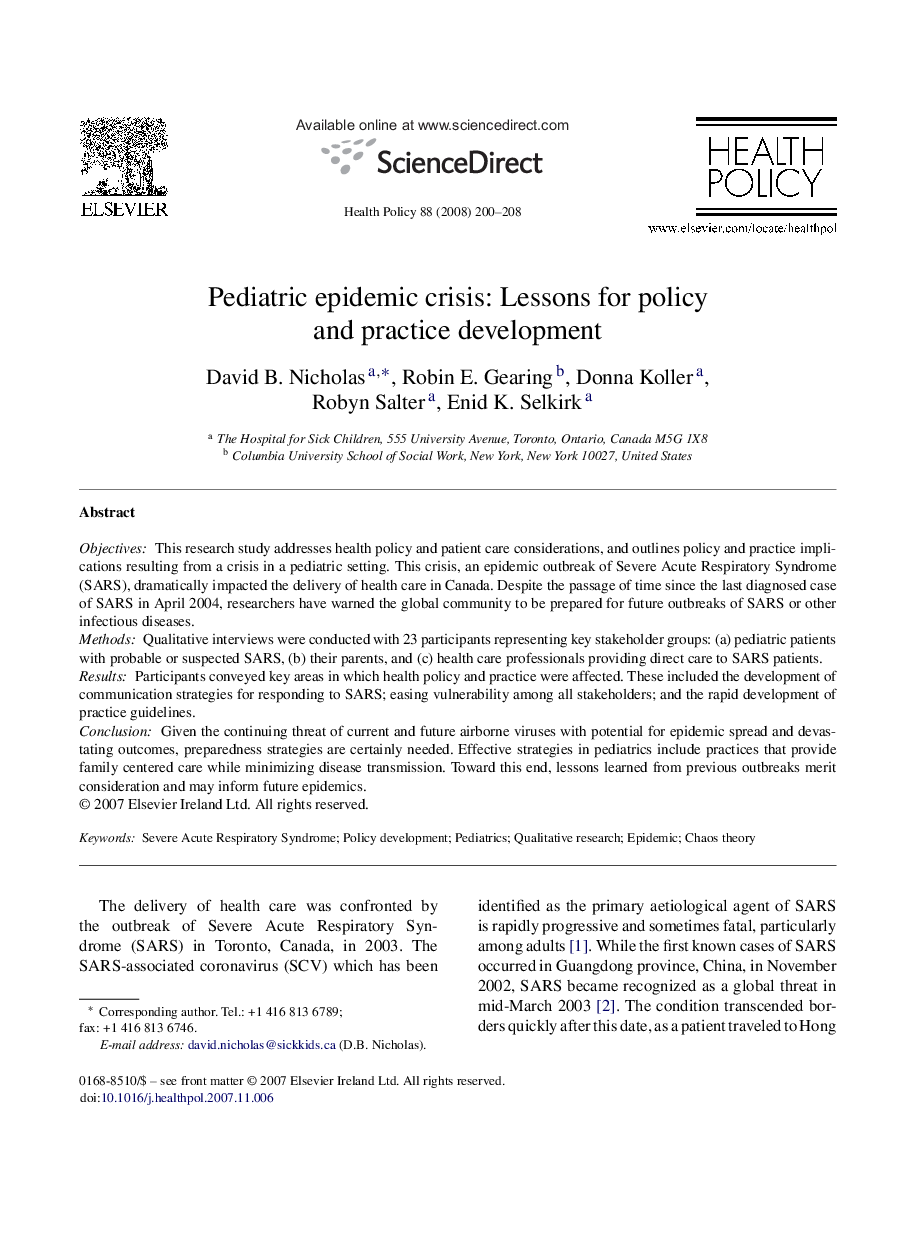| Article ID | Journal | Published Year | Pages | File Type |
|---|---|---|---|---|
| 4198805 | Health Policy | 2008 | 9 Pages |
ObjectivesThis research study addresses health policy and patient care considerations, and outlines policy and practice implications resulting from a crisis in a pediatric setting. This crisis, an epidemic outbreak of Severe Acute Respiratory Syndrome (SARS), dramatically impacted the delivery of health care in Canada. Despite the passage of time since the last diagnosed case of SARS in April 2004, researchers have warned the global community to be prepared for future outbreaks of SARS or other infectious diseases.MethodsQualitative interviews were conducted with 23 participants representing key stakeholder groups: (a) pediatric patients with probable or suspected SARS, (b) their parents, and (c) health care professionals providing direct care to SARS patients.ResultsParticipants conveyed key areas in which health policy and practice were affected. These included the development of communication strategies for responding to SARS; easing vulnerability among all stakeholders; and the rapid development of practice guidelines.ConclusionGiven the continuing threat of current and future airborne viruses with potential for epidemic spread and devastating outcomes, preparedness strategies are certainly needed. Effective strategies in pediatrics include practices that provide family centered care while minimizing disease transmission. Toward this end, lessons learned from previous outbreaks merit consideration and may inform future epidemics.
